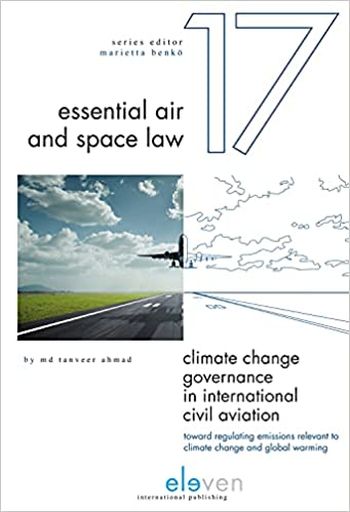
In this book, the author argues that, to successfully govern emissions from international civil aviation of relevance to climate change and global warming, binding legal measures, whether de facto or de jure, and a mandatory but temporary global market-based measure or unilateral market-based measures of the same model adopted by economically powerful States for international civil aviation are immediately required.
This book demonstrates how de jure soft law instruments, e.g., Annexes to the Chicago Convention, international environmental law principles, a new understanding and way of exercising the doctrine of State sovereignty, and both multilateral and unilateral economic instruments can be utilized to reduce aviation's environmental impacts. This book explores the existing capacities of the governance actors in aviation, and shows how they can play a significant role in climate change governance from within their limited capacities.